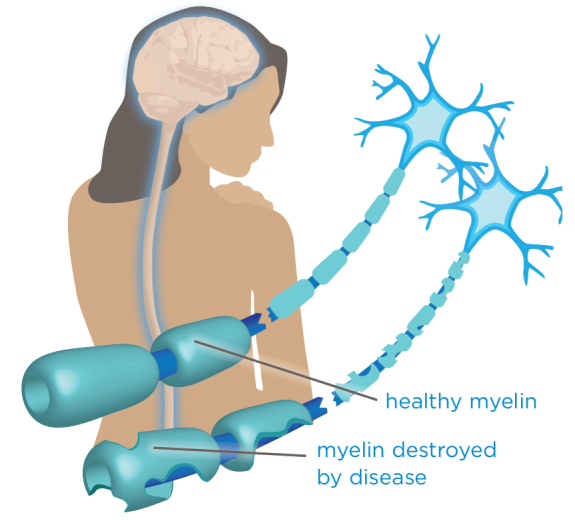
Hopeful Progress in Multiple Sclerosis Research
Multiple sclerosis (MS) affects more than a million people worldwide including 15,000 in the Northwest. It affects women twice as often as men. MS is the most common medical cause of neurological disability in young adults ages 20-40. Usually MS happens in multiple attacks. This can cause loss of vision; loss of sensation; or debilitating weakness, dizziness or pain.
Mariko Kita, MD, Benaroya Research Institute clinical investigator and director of the Virginia Mason Multiple Sclerosis Center, provides an update on the latest research in MS.
What Causes MS?
We still don’t know. It may be caused by environmental factors such as viruses or a lack of vitamin D, and it has a strong genetic component. At BRI, Steve Zeigler, PhD, director of the Immunology Research Program, is researching whether an individual’s genetic code controls the development of MS.
What Treatments Are There?
The first disease modifying therapy for MS became available in 1993 and today there are 10. These treatments are oral, self-injected or infusions. They reduce relapses and slow progression of neurologic disability.
What Are The Types Of MS?
People have relapsing-remitting MS (RRMS), secondary progressive MS, primary progressive MS or progressive relapsing MS based on whether they have relapses/exacerbations, a stable level of functioning between relapses or if they are slowly getting worse. We have learned that these categorizations aren’t very helpful in treating people.
What’s important is what is happening behind these relapses and progression. In healthy people there is a balance between the inflammatory part of our immune system (when we are fighting infection, etc.) and the anti-inflammatory part of the immune system (when we calm down that inflammation). In MS, this is out of balance and we think the inflammation that causes lesions, scars, MS attacks and disability is being driven by Th1 cells. Our treatments tend to target calming down this inflammatory Th1 response or augmenting the anti-inflammatory Th2 response.
We have now learned about another important immune cell called Th17. It may play a role in the pro-inflammatory phase of the disease, causing relapses in people with MS. This research will help us classify MS according to an immunological basis such as a Th1- or Th17- driven disease.
At BRI, Estelle Bettelli, PhD, is characterizing Th17 disease. It may cause more motor deficit and respond to therapies differently. We have an upcoming clinical trial of a new treatment specifically targeting Th17.
How Do You Know How Severe A Person's MS Will Be?
At BRI, Jane Buckner, MD, associate director, and her colleagues have been studying patients with more active MS compared to those who have more benign MS. T cells, which are part of the immune response, are typically kept in check by regulatory cells. Dr. Buckner’s group has shown that in more aggressive RRMS, the T cells are able to evade regulation and they cause lesions. Her research also found how this could be reversed. When treated, T cells respond to the regulatory cells.
Immuno-what? Hear the latest from BRI
Keep up to date on our latest research, new clinical trials and exciting publications.


